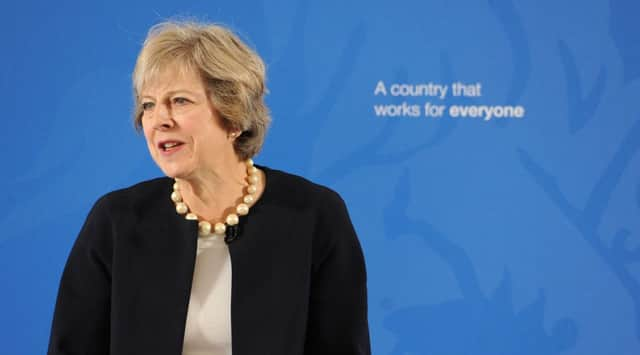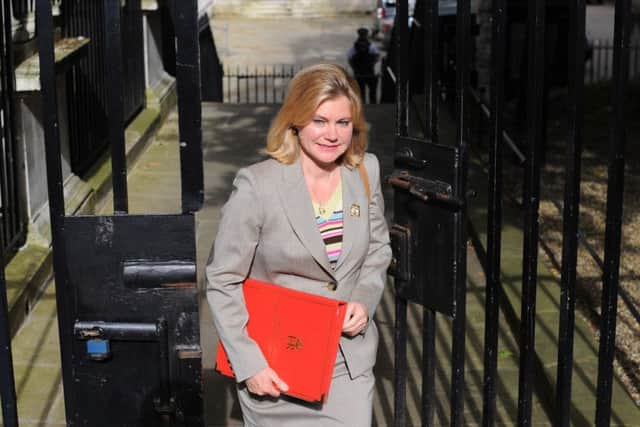Why grammar schools will take Britain forward, not back to the Seventies - May


The Prime Minister was accused of “putting the clock back” by chief schools inspector Sir Michael Wilshaw, who warned that a return to grammars would halt momentum towards better results in the state system.
But in her first major policy speech since becoming PM, Mrs May insisted that there will be “no return to secondary moderns” - the so-called sink schools of the pre-comprehensive 1970s which were blamed for consigning the majority of children to academic failure.
Advertisement
Hide AdAdvertisement
Hide Ad

Instead, she said her reforms were designed to provide “a good school place for every child and one that caters for their individual needs”.
And she set out a series of measures intended to ensure that new and expanded grammars make places available to children from disadvantaged backgrounds and help improve standards in non-selective schools. This could involve taking a proportion of pupils from lower-income background or opening a “feeder” primary school in disadvantaged areas.
“This is not a proposal to go back to a binary model of grammars and secondary moderns, but to build on our increasingly diverse schools system,” said the PM in her speech at the British Academy in London.


Advertisement
Hide AdAdvertisement
Hide Ad“It is not a proposal to go back to the 1950s, but to look to the future, and that future I believe is an exciting one.
“It is a future in which every child should have access to a good school place. And a future in which Britain’s education system shifts decisively to support ordinary working class families.”
Mrs May confirmed that she wants to relax restrictions - maintained by her predecessor David Cameron - which prevent the creation of new selective schools, the expansion of existing ones or the conversion of non-selective schools into grammars. It was “completely illogical to make it illegal to open good new schools”, she said.
The Government will provide £50 million a year to support the expansion of existing grammars, she announced.
Advertisement
Hide AdAdvertisement
Hide AdShe confirmed that she will lift restrictions requiring oversubscribed faith schools to make 50% of places available to children from other religious communities.
And she said that independent schools will face tougher test of public benefit in order to maintain their charitable status, while insisting there was no question of “abolishing or demolishing them”.
Meanwhile, universities will be required to take action to support attainment in the state system, by sponsoring a state school or setting up a new free school
“Politicians - many of whom benefited from the very kind of education they now seek to deny to others - have for years put their own dogma and ideology before the interests and concerns of ordinary people,” said Mrs May.
Advertisement
Hide AdAdvertisement
Hide Ad“For we know that grammar schools are hugely popular with parents. We know they are good for the pupils that attend them. Indeed, the attainment gap between rich and poor pupils is reduced to almost zero for children in selective schools. And we know that they want to expand ...
“We help no one - not least those who can’t afford to move house or pay for a private education - by saying to parents who want a selective education for their child that we won’t let them have it.
“There is nothing meritocratic about standing in the way of giving our most academically gifted children the specialist and tailored support that can enable them to fulfil their potential.
“In a true meritocracy, we should not be apologetic about stretching the most academically able to the very highest standards of excellence.”
Advertisement
Hide AdAdvertisement
Hide AdMrs May sought to allay concerns that middle-class parents will ensure their children seize the lion’s share of places in selective schools by paying for tutoring, insisting that new-style smart tests will be able to assess the “true potential” of each pupil.
And she said that schools will encouraged to recruit students at 14 and 16 as well as 11, to avoid the danger of children being written off as non-academic at the start of their secondary careers.